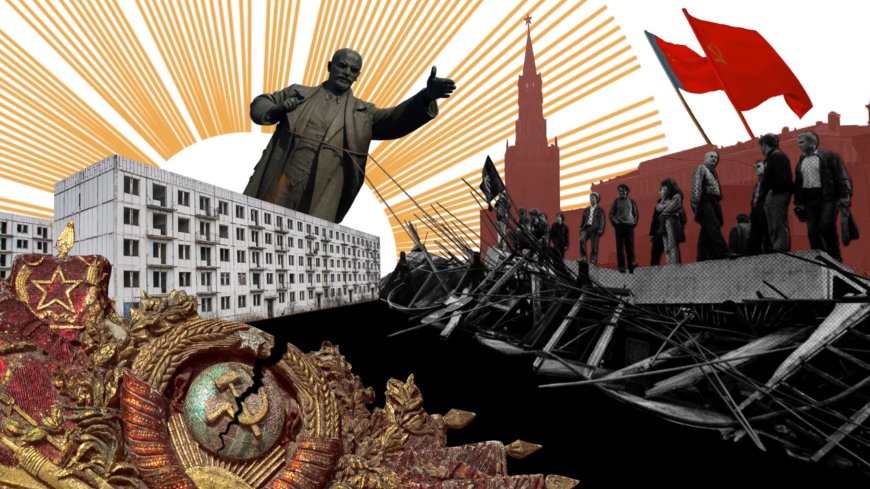Lessons from the Soviet Collapse: A Libertarian Perspective
Explore the lessons from the collapse of the Soviet Union through a Libertarian lens. Understand how the fall of this regime highlights the value of individual freedom, economic liberty, and limited government, and how these lessons can inform contemporary political and economic policies

Introduction

The disintegration of the Soviet Union in 1991 was a landmark event that reshaped global geopolitics and economic policies. For libertarians, the fall of the USSR is a case study in the failures of central planning and a testament to the necessity of individual freedom. This article explores the libertarian perspective on the Soviet collapse and the valuable lessons it offers.
Central Planning and Economic Collapse
Central planning was the cornerstone of the Soviet economic system, with the state controlling all major economic decisions. This led to significant inefficiencies, including:
- Resource misallocation
- Lack of innovation
- Chronic shortages of goods
Without market signals such as prices to guide production and consumption, the Soviet economy struggled to meet the needs of its people. These inefficiencies contributed to economic stagnation and, eventually, the collapse of the Soviet Union.
Key Libertarian Critiques
Mises and the Economic Calculation Problem
Ludwig von Mises, a leading Austrian economist, identified the Economic Calculation Problem as a critical flaw in socialism. He argued that without price signals from market exchanges, central planners are unable to make informed economic decisions. This issue was starkly visible in the USSR, where the absence of market mechanisms led to inefficient and often disastrous economic outcomes.
Hayek and the Knowledge Problem
Friedrich Hayek further expanded on Mises' critique with his Knowledge Problem. Hayek contended that the information needed for effective economic decision-making is dispersed among individuals and cannot be efficiently centralized. The Soviet Union's bureaucratic inefficiencies and inability to adapt to local conditions highlighted Hayek's insights, showcasing the impracticality of centralized economic planning.
Human Rights and State Repression
Beyond economic failures, the Soviet regime was infamous for its repression of individual freedoms. Issues included:
- Censorship
- Political persecution
- Suppression of dissent
From a libertarian viewpoint, these actions represent severe violations of personal liberty and human rights. The state's monopoly on power and its aggressive control over the populace are seen as fundamentally opposed to the principles of a free and just society.
Lessons Learned
The fall of the USSR offers several crucial lessons for modern libertarian thought:
-
Economic Freedom is Essential: The inefficiencies and eventual collapse of the Soviet economy underscore the importance of market-based systems that facilitate price signals and individual decision-making.
-
Decentralization is Crucial: Hayek's Knowledge Problem highlights the need for decentralized decision-making processes that respect local knowledge and individual autonomy.
-
Protecting Individual Rights: The Soviet experience illustrates the dangers of excessive state power and the importance of safeguarding individual freedoms against government overreach.
Conclusion


The collapse of the Soviet Union serves as a powerful reminder of the failures of central planning and the value of individual liberty. For libertarians, it reinforces the belief that a society based on free markets, limited government, and personal freedom is not only more prosperous but also more just. Understanding these lessons is crucial for advocating for policies that promote liberty and resist authoritarianism.
FAQs
-
Why did the USSR collapse? The USSR collapsed due to economic inefficiencies, public dissatisfaction, and systemic problems inherent in central planning and authoritarian governance.
-
What were the main economic problems? The main economic problems included resource misallocation, lack of innovation, and chronic shortages of goods, all stemming from the inefficiencies of central planning.
-
How do libertarians view central planning? Libertarians view central planning as inherently flawed due to the Economic Calculation Problem and the Knowledge Problem, leading to inefficiencies and misallocation of resources.
-
What lessons can we learn today? The key lessons are the importance of economic freedom, decentralization of decision-making, and the protection of individual rights against government overreach.
-
How does the USSR's collapse influence libertarianism? The USSR's collapse reinforces libertarian critiques of central planning and state control, highlighting the need for policies that promote individual liberty, free markets, and limited government.
What's Your Reaction?


















































